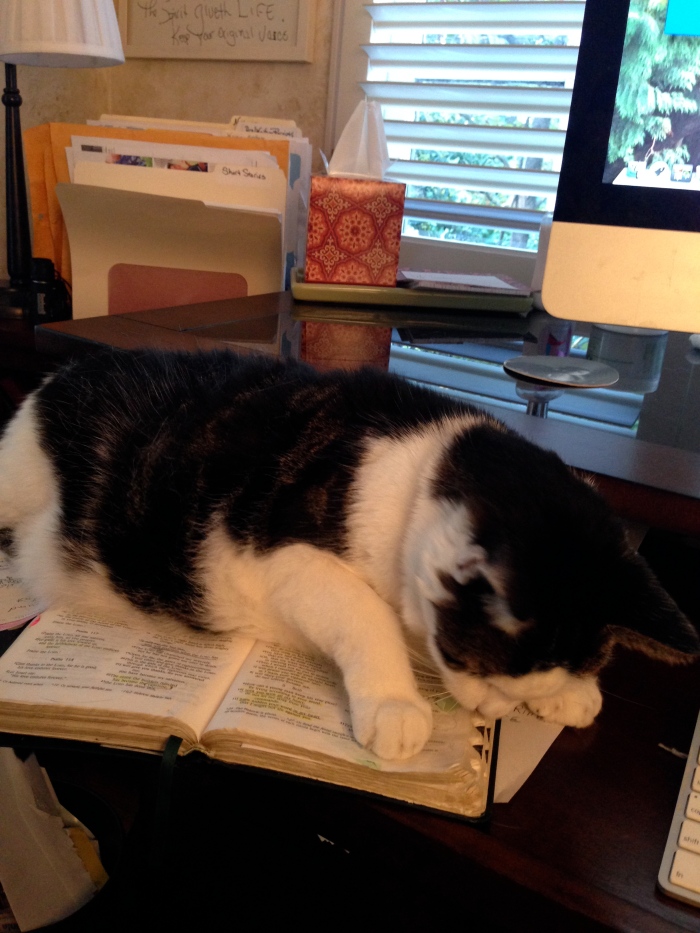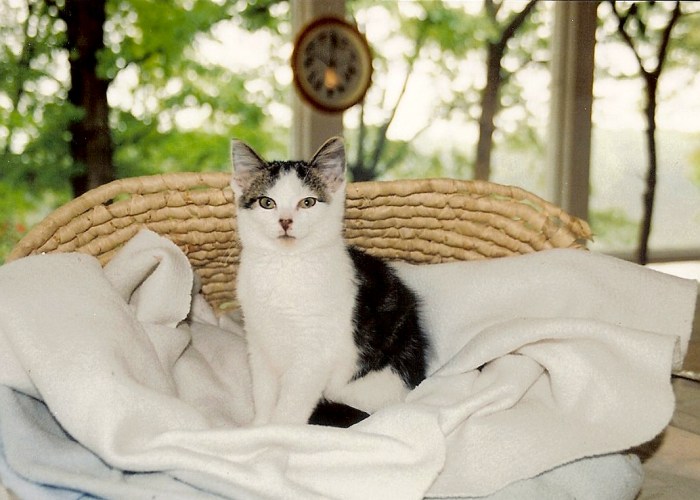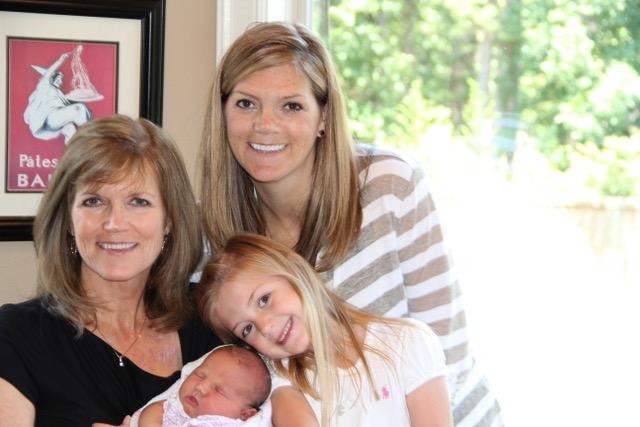It was a bad beginning when one of my high school English students began a sentence with “Me and George . . . ” interrupted by my correction “George and I.”
It was a worse intro to hear a young physician begin her sentence with “Me and my partners . . .” on a state-wide talk show.
I’ll be the first to say how little I know about medicine. (Actually, I almost faint at the sight of blood, and I skipped every biology class that had “dissecting” in the syllabus!) So it is in my minimal skills, I will never be a physician nor a politician, electrician and/or statistician.
Our English language, however, is needed by all. Please know my reasoning for sharing this is for your own good. (Did you just hear your mother’s voice? That was intentional.) Because whoever you are, wherever you are, whatever you do, you have to communicate.
And, sorry to say, but the consensus is out: The better we are with our oral and written communication skills, the better others perceive us. A faulty judgment at times, I know. I didn’t start it.

Searching for the right Word.
The fact is our English language with its many rules of grammar is tricky. So vast is it that English majors rarely grasp it all. And, of course, the rules change. Like wearing white after Labor Day, we now can begin sentences with and. And it’s legal. But I hesitate at times to do either–wear white after Labor Day and begin sentences with and. My reasoning? What if others don’t know I know it’s okay to break the rules? That’s my quandary.
However, friend to friend, colleague to colleague, there are a few areas where we must pay attention. Otherwise, we alert our listeners that we were probably daydreaming a few too many dreary days in English class.
Today’s Reminders
Most of us recognize that using the objective me in place of the subjective I is more of a bad habit than it is our failing fifth-grade English class. “All my friends say it,” seems plausible for a high schooler. My case in point being the “Me and George” mishap.
However, there’s one HUGE mistake, so simply said, so vastly wrong, I must mention it. Humor me for a minute by considering the following:
True or False? If you’re not sure whether to use the pronoun I or me in a sentence, always use I. It sounds more formal. AND it always sounds smarter.
Answer: FALSE!!!
Too often lately I’ve heard and read the forthcoming problem from educated people who “know better.” It’s when they say and write I instead of me. And it’s not just an occasional slip either when someone starts a sentence, only to change it midstream. Thus, the two halves equal one mismatched mess.
I hear it from those who litter it throughout their speeches, interviews and conversations, those times when they’re trying to sound proper. Currently I’m reading a book by a well known author from an even more well known publishing house. So far I’ve noted several sentences that go something like this—
The gift was given to both my colleagues and I.
Terry’s latest gossip was about Harry and I.
My supervisor recognized my mother, brother and I at the restaurant.
Today’s bite-sized tip
I is always the subject of a sentence.
George and I both lost our notebooks.
Me is an object—a direct object, indirect object, object of a preposition.
My boss hit me with a tough assignment. (DO)
Then she gave me a raise. (IO)
or
Then she gave a raise to me. (Obj of Prep)
(Remember those prepositions that take us over, under, beneath, around, against, to, from, on and on?)
Here’s an easy way to figure out when to use me with multiple objects. Since most errors include another person in the sentence, drop the others and test whether I or me alone sounds right.
Would you say, “The gift was given to I”? The gossip was about I? My supervisor recognized I?
Until it becomes a natural response, it’s okay to pause and appear wiser, so you’ll sound a bit wiser. Our ear can help us most times … that is, unless our family and friends are saying it incorrectly.

Einstein-When I was a kitten, I spoke as a kitten.
One of the many times I stand corrected
I was simply repeating what my mother had said while I was growing up. My day of reckoning was one Thanksgiving holiday when I was busy in the kitchen. I said to my husband Bill, “I need to unthaw the turkey for tomorrow.”
“Unthaw?” Bill asked. “Did you say unthaw?”
I paused and looked up from my chopping block, catching that mischievous glint in his eyes. This usually means “gotcha in a goof.” (I confess this is one of our piddly pastimes. Yes, we are that boring.)
“Does that mean you’re going to freeze it?” he continued.
There it was, he had caught me in an error, only I wasn’t sure what I’d said wrong. Before I had to think too hard, he explained.
“Ann, if you’re thawing something, you’re unfreezing it, right? But if you’re unthawing it, wouldn’t you be freezing it? And by the way, don’t you teach high school English?”
I stood frozen, or perhaps, unthawed. “I guess so,” I decided aloud. “But that’s what my mother always said, so I said it.”
(Should I mention that Mother was a Hendrix graduate and valedictorian of her high school class?)

Three generations who unthaw foods vs. thaw them.
The next day with our grown children in town and gathered around the dining room table, Bill shared my lifelong misnomer while daughter Ari was in another room. When Ari sat down at the table, Bill asked, “Ari, when you take a package of hamburger meat out of the freezer, what are you going to do with it?”
Confused, Ari hesitated then said, “You mean, unthaw it?”
Obviously some of our errors are passed down for generations before we realize it. So we have to correct each other lovingly, right?

Let’s reconsider starting a sentence with “me.”
I tried correcting my granddaughter Elizabeth when she was only four. Sitting at our kitchen table, she began her story with “Me and Will played …” when I interrupted with a firm “Will and I.”
She looked at me quizzically and started again, “Me and Will …”
Again, I corrected her mid-sentence, “Will and I.”
After a few more rounds, she released a heavy sigh and said, “Me and Will and you . . . “
Maybe I should have waited another year or two.

Grammar lessons are exhausting!.
“Let all you do be done with love.” I Cor. 16:14
The art page has photo art entitled Frozen.
If you know someone who needs encouragement during their adoption process, a shortened article with my experience about adopting my son Matt entitled “Maternal Instincts” was in January’s Guideposts Mysterious Ways magazine. A longer version about adopting Matt, “When a Door Closes, Keep Knocking,” will be in Jesus Encounters, a Jim Bell/Bethany House project, out this summer.


I literally laughed out loud Elizabeth’s pander at the end. How did your family pronounce ‘wash?’
LikeLike
I’m thinking “wash.” Did you have some “warsh” family members?
LikeLike
Yes, my mother used to say “warsh.” After moving to New England I broke myself of the habit. Mom was from the west, so I’m not sure that was an Arkansas colloquialism. By the way, spellcheck didn’t want me to spell it with an ‘r.’
LikeLike
Haha! Me, too! Spellcheck thinks it’s so much smarter than we are, and for me, at times, it is! I don’t remember hearing that. I thought your parents and mine said everything correctly. But as a child, what did I know! One of the best lessons I had was in a ninth-grade a capella choir with Laura Beth (McClarty then and White now). She was tough on us and our twangy pronunciations. A superb teacher and person, she gave us lifelong lessons.
LikeLike
I laughed so hard at unthaw. We have one of these mystery words, but I can’t think of it. When I do, I’ll be sure to let you know. It’s just as strange and funny.
LikeLike
Now that makes me laugh with you across the miles. Isn’t it significant how we can grow and believe those older smarter people to be all truth! Bill still won’t let me forget how I unthaw stuff. Thank you for reading.
LikeLiked by 1 person